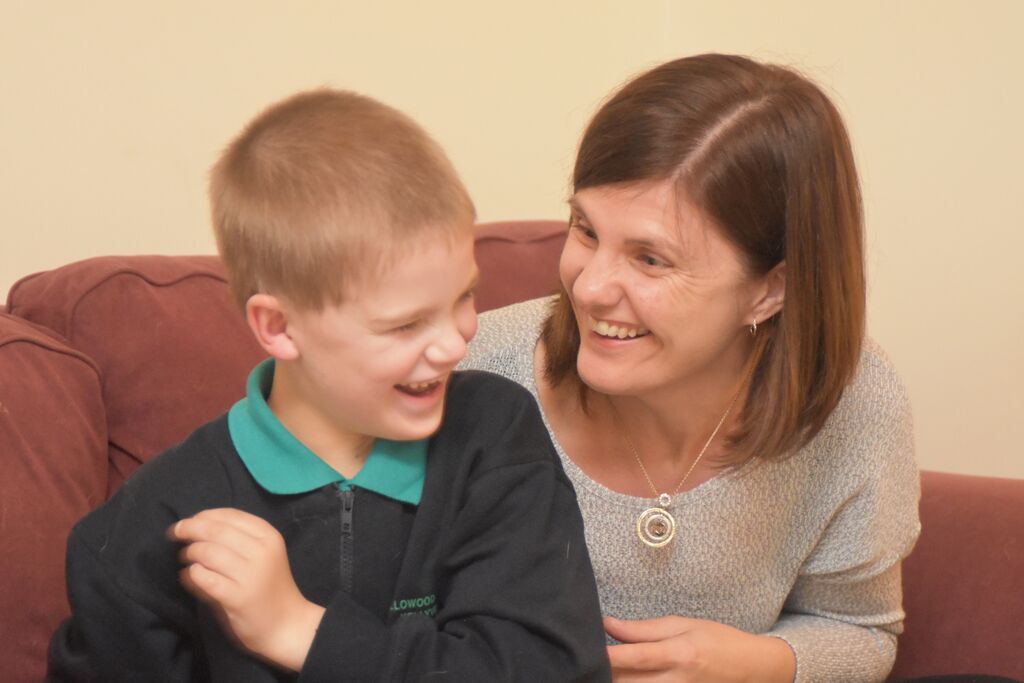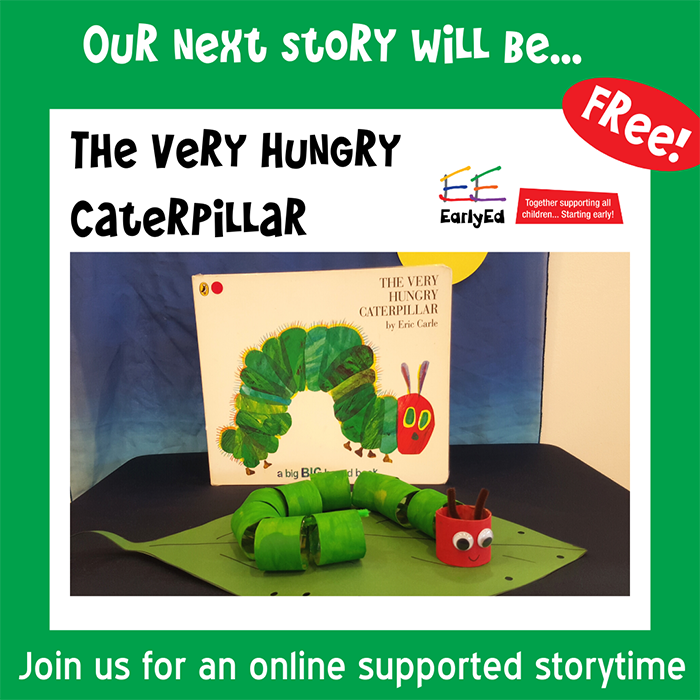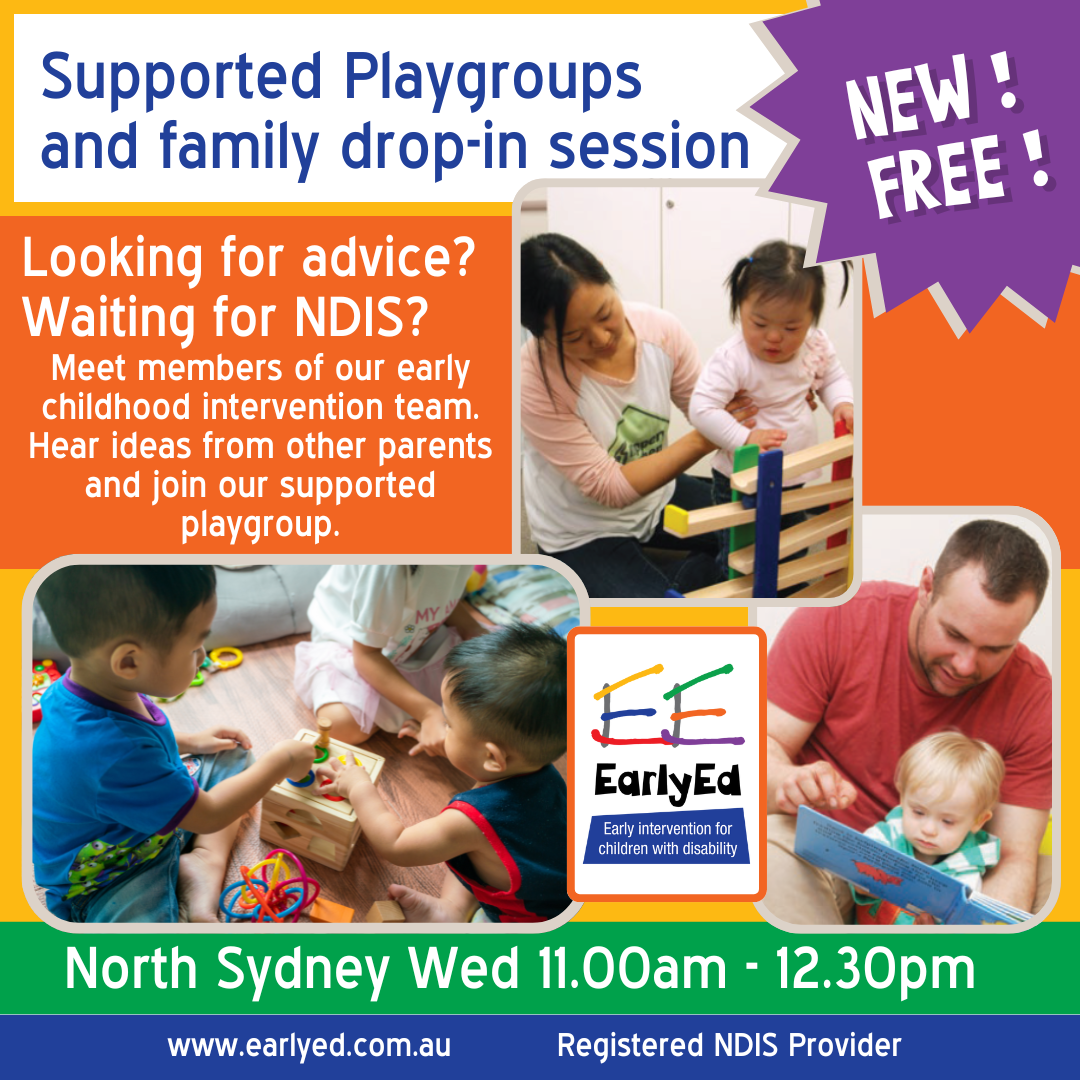Positive Behaviour Support
All EarlyEd educators and therapists can offer positive behaviour support. Our approach recognises that children are continually learning how to participate in family and community life.
Behaviour can be addressed as part of any goal, by any member of a child’s early childhood intervention team. At EarlyEd, because our educators and therapists all work as a Team around the Child, it is easier to have:
- common goals and approaches to behaviour and
- support for behaviour included as part of all their sessions.
The focus of EarlyEd’s approach is to use positive behaviour techniques
- during the important periods of child development i.e.to prevent / reduce the development of behaviours of concern and
- to help children manage in new environments, routines and transitions such as childcare and schools.
EarlyEd offers support in six ways.
1. Early Childhood Intervention Flexible Individualised Support
EarlyEd’s Positive Behaviour Support (PBS) meets the needs of each child as it recognises that:
- a child is part of family unit
- children are continuing to grow and develop
- support needs to be offered where a child spends their time – home, school, early childhood settings or community and
- all children are different. They have their own strengths and ways of learning.
Positive Behaviour Support (PBS) services will include:
- visits to observe and support your child where they are
- Behaviour Support plan development
- collaborative sessions with other people involved with your child to help you learn new skills ( eg speech pathologist for communication, occupational therapist for self-care skills and routines)
- training for parents, carers and teachers
- between visit follow-up phone calls and telepractice sessions
This approach ensures:
- better outcomes
- we walk alongside each family while they need it and
- each child is supported across all environments.

About Positive Behaviour Support (PBS) services
EarlyEd offers 3 levels of support. The one you receive is based on your child’s age, needs and funding, as well as the needs of your family and school, preschool or childcare services.
Level 1:
All EarlyEd practitioners are able to offer Level 1 supports.
These are foundational for your child’s development.
The purpose of this level of support is to focus on the use of positive behaviour approaches of child development i.e.to PREVENT / REDUCE the development of behaviours of concern.
EarlyEd’s Behaviour practitioners:
- recognise that children do go through developmental stages that make caring for them challenging at times
- consider how a child is growing and learning
- recognise that having delays in development and/disability can slow the pace of learning and make it harder to learn.
Children behave in particular ways for a reason.
Behaviour is always communicating or telling us something.
Working together we can support a child to learn to use age-appropriate behaviours and encourage their participation and inclusion in family and community.
Positive behaviour support as part of therapy and early childhood intervention services can be funded through the NDIS or private health funding.
Level 2:
This level of support still has a preventative purpose. This is the level of support offered when there are EARLY SIGNS OF BEHAVIOURS OF CONCERN. These behaviours might be outbursts, aggression, running away, social withdrawal, self-harm, in-flexible and difficulties with routines, sleep or eating.
Level 2 builds on Level 1 supports to proactively manage behaviour effectively. This helps prevent escalation of behaviours.
All EarlyEd practitioners especially educators, social workers, speech pathologists, physiotherapists and occupational therapists can offer Level 2 supports. Some of our social workers and educators have their training and experience recognised as Specialist Behaviour Support Practitioners.
Parents can come to EarlyEd even though they have other regular services, if they need services that can address behaviour specifically. EarlyEd will collaborate with others in your team.
Parents can use other early childhood intervention funding such as NDIS or private health funding to access support for behaviour and to help prepare the documentation needed to apply for Level 3 Specialist Behaviour Support.
Level 3:
This is Specialist Behaviour Support.
It focuses on PREVENTION but also involves SPECIALIST MANAGEMENT. Services are delivered by those who have undertaken intense training and have their experience recognised by the National Quality and Safeguards Commission as Specialist Behaviour Support Practitioners. These providers also need to be registered by NDIS.
EarlyEd has a team of Specialist Behaviour Support Practitioners.
Children receiving these services will have more complex and maybe even chronic behaviour issues (that can affect the safety of the child and others around them). Those delivering these services need to know how to manage critical incidents, report on incidents, develop behaviour plans and address restrictive practice considerations.
Children will need a Specialist Behaviour Support funding package from NDIS to obtain these services.
2. Specialist Behaviour Support
EarlyEd is a NDIS registered provider for Specialist Behaviour Support. This is a highly specialised and intensive form of behaviour support, that falls under the Improved Relationships category of NDIS funding. There are three parts to this intervention:
- Assessment
- Development of a behaviour support plan
- Training, coaching and adjustment of plans
Our expertise in evidence based best practices in early childhood intervention underpins our unique services as behaviour practitioners in this field. This means that we work collaboratively with your child’s team and partner with you to support your family. All team members have a knowledge grounded in understanding how
- children develop,
- delays in development and disability can impact their learning and social skills
- the type of support children need in childcare, preschool and school
- the ways other professionals such as speech pathologists, physiotherapist, occupational therapists and educators can support your child’s skill development.
Our plans will address the needs of a child in the places where they spend their time – home, community, school or early childhood settings.
If you have this funding, you can make an enquiry about services.
If you are concerned that your child needs targeted supports for behaviour you can talk to members of the Specialist Behaviour Support Team about how to apply for this.
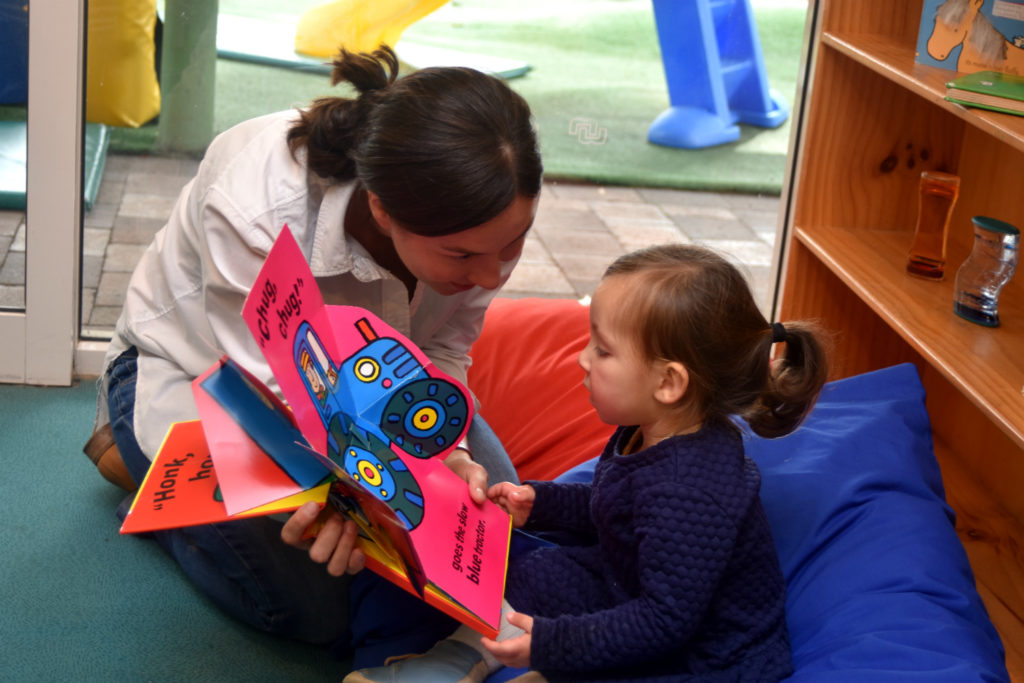
3. Stepping Stones
We also periodically offer the evidence based Stepping Stones Triple P seminars program which is a specialised approach for children with a developmental delay or disability, based on the world renowned Triple P parenting program.
Qualified Stepping Stones Triple P trainers from our early childhood intervention team run these online programs.
They are a great preventative program but also work well to help you problem solve particular challenges.
Stepping Stones Triple P Seminars online
Our qualified Stepping Stones Triple P presenters regularly run the three Stepping Stones Triple P Seminars for parents and carers. Check our calendar for current dates.
These are the 3 topics; they link together so it is best to attend all three.
Seminar 1: Positive Parenting for Children with a Disability
Seminar 2: Helping your Child Reach Their Potential
Seminar 3: Changing Problem Behaviour into Positive Behaviour

4. Innovative Solutions
Innovative Solutions Support (ISS)
“Innovative Solutions Support funds flexible and alternative solutions to address inclusion barriers in services.
The ISS is available through the Inclusion Development Fund to assist eligible early childhood education and care (ECEC) services to fund innovative, flexible and responsive solutions to barriers to inclusion and embed inclusive practices.
It provides funding for flexible and tailored inclusion support that goes beyond the scope of support that can be provided by Inclusion Agencies.
Innovative Solutions Support provides flexible funding to empower services to carefully consider their inclusion challenges and take on an active role in finding solutions and build their capacity and capability to include children with additional needs.
For more information about ISS click here. Source.
EarlyEd has been delivering Innovative Solutions Support across Sydney since it first started in 2020.
Projects involve the engagement of an external provider who has relevant skills, experience and qualifications in relation to the identified inclusion barriers and can support the development of the service’s inclusion capacity.
Call EarlyEd on 9923 2727 and ask for the Project Manager to get your Innovative Solutions Project started.
We can help you co-design your project and tailor it to what the needs are at your service.
EarlyEd staff are qualified and experienced in working with ECEC services offering;
- mentoring,
- coaching,
- guided practice,
- hands on training and
- professional development to build your team’s confidence and skills in inclusive practice to support a range of children in your service.
5. For Schools – a Specialist Allied Health and Behaviour Support Provider
EarlyEd has been approved to be on the Specialist Allied Health and Behaviour Support Provider Scheme since January 2020.
We can provide services in all of these specialist areas.
- Occupational therapy
- Speech pathology
- Physiotherapy
- Specialist behaviour
What is the NSW Education Department Specialist Allied Health and Behaviour Support Provider Scheme?
It is a “pre-qualification scheme established by the department for specialist allied health service providers. The Scheme supports schools that may need to directly engage specialist allied health services to ensure learning adjustments are appropriate and effective for students.
Some mandatory requirements will have been undertaken by EarlyEd to complete the pre-qualification process. These requirements are maintained centrally through the department. Each quarter we complete a report to the department about our activities as part of the scheme. EarlyEd’s provider details for participation in the Scheme can be checked through the database of allied health providers.
The following links from the department website may help schools know more about the scheme.
Prequalification scheme provides schools greater access to allied health support (nsw.gov.au)
What initiatives can support my school? (nsw.gov.au)
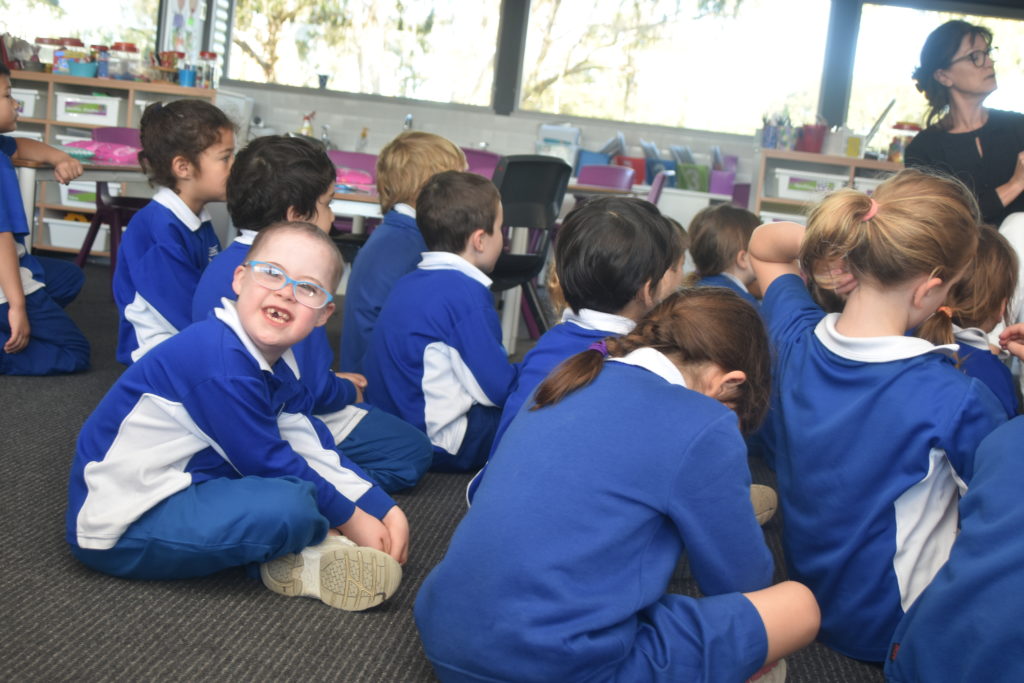
Why choose EarlyEd as a provider?
EarlyEd allied health practitioners deliver supports to students and schools via modes that meet their needs and preferences.
By working together in partnership schools and EarlyEd can determine the preferred modes of delivery and frequency of service. https://www.earlyed.com.au/educational-professional-support/
The EarlyEd team endeavours to also find ways that can best capacity build the school / teachers involved. Services can be any or a combination of supporting
- children face to face: individually, class support or in small group settings, assessments, parent training
- planning and programming individually or for the class or school
- remote/online delivery through telepractices
- consultancy, coaching, video feedback, mentoring and professional development workshops.
EarlyEd matches the modes of delivery to the school, children and their families.
The choice of delivery will be impacted by the type of support needed
- in the class
- playground
- extracurricular activities
- transition to school
- family support
- assessment
- funding applications including
- child support to access NDIS and
- environmental modifications.
EarlyEd recognises the need for flexibility in modes of delivery in order to adapt to the demands on time and availability of staff, of the school routines and programs so that best outcomes are achieved for children and the school.
Technology is used to increase access, flexibility and frequency of communication and be innovative with assessments and feedback. Video, phone calls, online meetings, messaging, and emails leads to responsive and increased adaptions and quicker solutions.
Experienced working in schools and in the community
All EarlyEd services are
- community,
- home,
- in early childhood education settings and
- school based
which gives the EarlyEd team a deep understanding of
- the needs of children in varied settings (and transitioning into and out of these settings), and
- how to create a team around each child,
and extensive experience in
- translating strategies into practical support and
- partnership collaborations that maintain the team around the child by engaging the parties in planning, decision making, and services.
Multidisciplinary Approach – one or more allied health disciplines create a team
EarlyEd operates as local, collaborative, multidisciplinary teams based in our areas. Schools can engage one or more practitioners from EarlyEd at the one time, to create a collaborative team. This is particularly helpful and cost effective when there are children with complex needs and disabilities. In these situations, a key person is allocated to coordinate the assessments, reporting, supports, collaborative planning, monitoring and communications in partnership with the school (key worker).
This can be most effective when children have a NDIS package as it can reduce the number of non-school staff in the classroom and school environment and streamline planning and implementation of strategies at school. All-of-class and school strategies can also be implemented.
This best practice approach helps create clear communication pathways, minimises communication demands and helps to keep information current for all parties. Practitioners can support, implement and monitor the goals and strategies recommended by others while undertaking their own interventions.
Professional Development and Training for schools
Professional Development support is designed to meet the specific learning outcomes of the school staff using an approach that includes pre workshop planning sessions and optional follow up practical on-site coaching support. https://www.earlyed.com.au/educational-professional-support/
Many of EarlyEd’s practitioners have specialised skills, certifications and knowledge such as
- meal-time management,
- Augmentative Assistive Communication,
- inclusion practices and
- specialist behaviour support
- toilet training
https://www.earlyed.com.au/our-services/therapy-services/behaviour-support/ therefore targeted training can be offered. As EarlyEd has a full multidisciplinary team we can offer tailored training that incorporates cross discipline knowledge. As the team includes teachers it reflects the needs of teachers and schools.
Training sessions for parents
Through the Specialist Allied Health and Behaviour Support Provider Scheme, the allied health team, special educators and teachers can offer targeted training programs for families from school readiness to support of behaviour and learning.
We have resources schools can share with families in 14 different languages that support school readiness.
What does a Behaviour Specialist do in Early Intervention?
All early intervention staff have the specialised experience to support the development of your child’s behaviour and can offer this support as part of your regular services. Your early intervention team works together to help support behaviour across all situations.
What kinds of specialised Behaviour Support services does EarlyEd offer?
EarlyEd has Behaviour Support Specialist specialising in:
- Family Support services
- Speech Therapy
- Occupational Therapy
- Special Education
Why would I use Behaviour Support services?
Behaviour Support can help with children who find learning difficult. If learning is difficult for your child, then your child’s behaviour might become challenging. Behaviour Support Specialists can assist you in at home, at school or out in the community – for example, at the shops..
How can behaviour support services at EarlyEd be funded?
Behaviour support services can be funded using your child’s NDIS package under Improved Daily Living Skills (Therapy Supports, Assistive Technology or Home Modifications). Alternatively, if you are not eligible for NDIS funding, our services can be funded by a range of other funding options including Medicare, private health insurance, or private funding.
